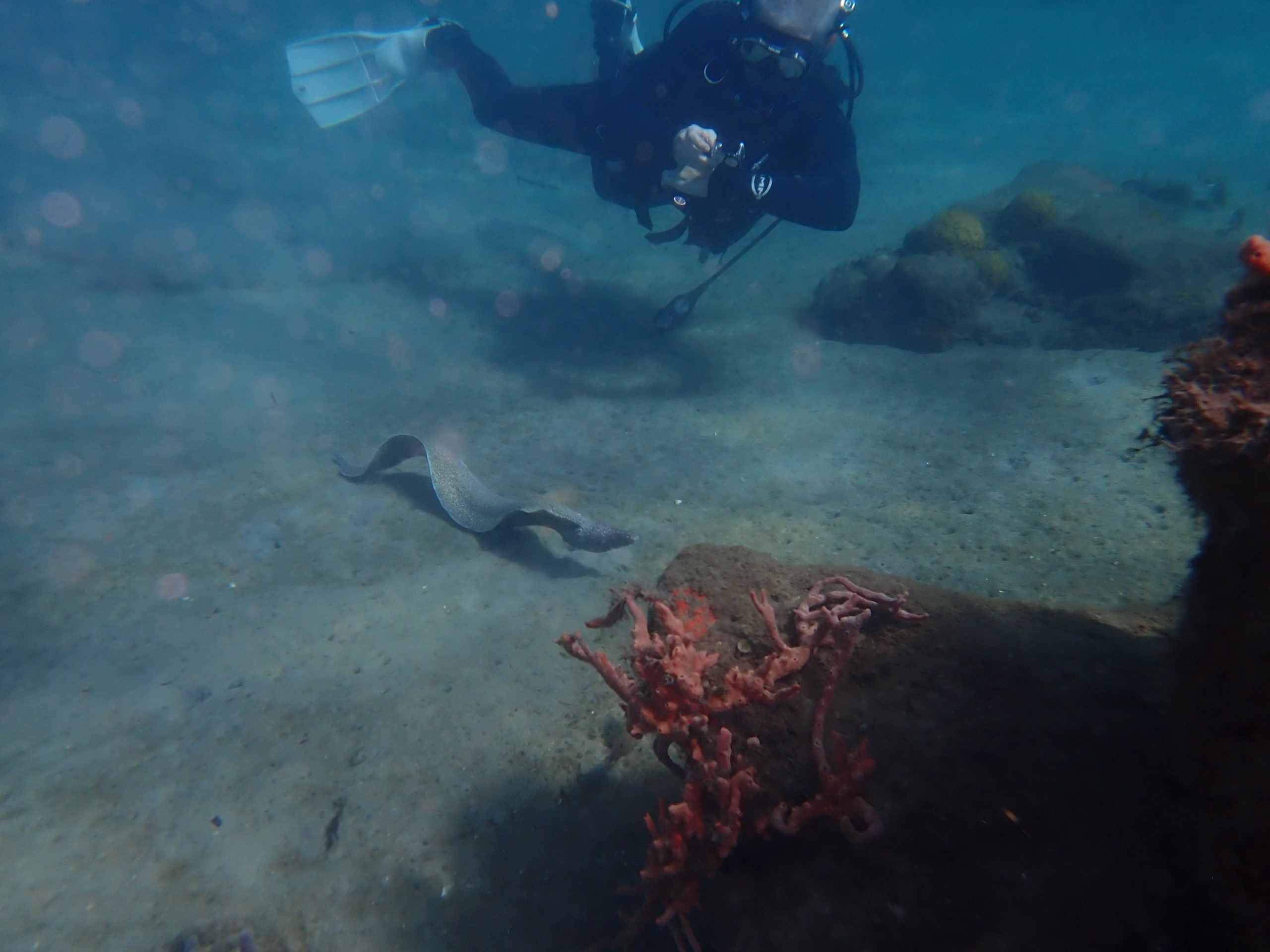No products in the cart.
What is Scuba Diving?

Scuba diving might sound like an adventure reserved for mermaids and explorers, but it’s actually an exhilarating activity that lets us humans experience the wonders of the underwater world. So, what is scuba diving all about? Let’s dive into the basics and explore this fascinating aquatic realm.
Seriously Though, What is Scuba Diving?
At its core, scuba diving is all about providing us land-dwellers with the tools we need to breathe while immersed in water. Picture this: you’re suited up with a tank of compressed air, a regulator that converts that air into breathable gas, and a mask to help you see underwater. Armed with these essential tools, you’re ready to descend into the aquatic realm, armed with the ability to explore and marvel at what lies beneath the surface.
Once you’re geared up and ready to go, the underwater world becomes your oyster. With every breath you take from your trusty regulator, you’re transported into an environment of tranquility and wonder. It’s a place where you can glide through the water, weightlessly observing the graceful dance of sea creatures, from the smallest fish to the majestic marine mammals. Scuba diving lets you be a guest in this alien yet captivating realm, providing a rare glimpse into the lives of its inhabitants.
Unleash Your Inner Explorer
Imagine floating weightlessly in the vastness of the ocean, surrounded by curious fish, vibrant coral formations, and perhaps even the haunting silhouette of a shipwreck. Scuba diving opens a door to a whole new dimension, a world of awe-inspiring beauty and hidden treasures waiting to be explored. It’s not just about glimpsing marine life from the surface – scuba diving lets you become a part of it, if only for a little while.
How Does Scuba Diving Work?
Before taking the plunge, there are some things you need:
Training
All the rest of this is moot if you don’t seek professional training. Here in the US few if any local dive centers will rent you gear or tanks if you can’t show a current scuba certification from a recognized agency. Don’t try and skip this step. If you are serious about scuba diving, invest in proper training.
A Buoyancy Control Device (BCD)
A is a jacket-type device that helps you maintain your buoyancy in the water. They come in all sizes and several different styles. Which one you choose depends largely on what makes you comfortable in the water. Try a few different ones before buying.
A Regulator
The gas in your tank is stored at high pressures, usually more than 3,000 PSI. At this pressure, it would be impossible for divers to breathe straight from the tank. A regulator steps the pressure down from high pressure to an intermediate pressure that you can breathe. It then makes it available to you simply by inhaling. When you stop inhaling, the airflow pauses until you breathe in again.
A Mask
A scuba mask helps you see underwater. Maks come in a variety of styles and price ranges.
A Pair of Fins
A good pair of fins will help you move effortlessly through the water. With all the gear and weights you will be wearing, you won’t be able to move much in the water without a good pair of fins. Make sure you invest in fins that are designed for scuba and not snorkeling.
A Tank
The tank holds the gas you breathe. For new divers this will most likely be air, however divers with more advanced certifications breathe different mixtures in increase their bottom time and decrease their surface interval time.
Console
An instrument console can take several different forms. The simplest these days is a small dive computer that tracks your time underwater and depth. Additionally, you will have a submersible pressure gauge. These three pieces of information are critical in scuba diving. Dive consoles with integrated air computers offer a more complex but comprehensive solution. This means that the computer can measure the air pressure in your tank. Now you are down to a single instrument on your console that tells you everything. Most consoles also have a compass mounted on the top. More expensive dive computers will have a built-in digital compass.
There are other pieces of gear that you may want as a scuba diver – flashlights, muck-stick, dive, flag, safety sausage, etc. – but these are the basic pieces of gear that you will need to scuba dive.
Taking the Plunge
Most local dive centers run some form of a “Discover Scuba Diving” dive. (DSD) In these entry-level dives, you are given the basic training you need to do a simple dive. Then the leader will help you gear up and will take you underwater. If you are lucky to be somewhere like South Florida, your DSD could be at a site like the beautiful Blue Heron Bridge. Other DSDs take place in quarries or pools. Regardless of where you do a DSD, it’s a great way to find out if scuba diving is for you. Along the way, your DSD leader will answer a lot of the questions you may have about what scuba diving is.
Wrap Up
Whether the mysteries of wrecks draw you in, colorful coral gardens enchant you, or the allure of underwater exploration captivates you, scuba diving presents an unparalleled journey into the heart of the ocean. So, if you’ve ever wondered what lies beneath the waves, it’s time to answer the call of the deep and embark on your scuba diving adventure.

Join Our Mailing List For New Scuba Divers
If you like this tip for new scuba divers, join our mailing list. You’ll get a new tip delivered to your inbox each week. Learn to dive confidently!